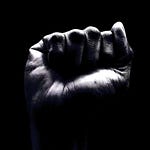How do you know when you need to leave a place?
No, the question is larger than that. How do you know when you need to escape?
And even larger is the third and most important question. Do you possess the skills that will enable you to escape?
In 1979, nearly all of our teachers at the reservation school were white.
One of those white teachers, Mr. K, had been working in Wellpinit for over a decade. We had two kinds of white teachers on the reservation: the enduring ones who adored our collective joy and the ones who fled after a year because they couldn’t handle our collective sadness. Mr. K was a good guy. Very short. Prone to temper tantrums. Quick to apologize. A man who sometimes told stories about his childhood instead of teaching us.
And he, for some reason, decided to form a Knowledge Bowl team to compete in the Spokane city regionals.
According to their website, “Knowledge Bowl is an interdisciplinary academic contest that combines intense competition with the incredible skill of knowledge recall. Team members work cooperatively to solve oral and written questions while teams race against each other to be the first to ‘buzz in’ and answer the question correctly.”
None of us Indian kids had ever heard of Knowledge Bowl. But Mr. K was passionate about the prospect. So he choose six of us seventh-graders as the team and we hopped in a school bus and headed to Shadle Park High School in Spokane.
We were late so we didn’t get to participate in the opening ceremony. We didn’t hear the official rundown of the rules. Instead, Mr. K had read the rules to us on the school bus as we’d traveled to Spokane. At the venue, we were quickly shuttled into a room where we sat at a table opposite six white kids—three boys and three girls. I don’t recall what school they were representing but they were all dressed formally. Blazers and neck ties. Cardigans and scarves. Shiny shoes. All of us Indians were dressed in T-shirts and Wranglers, the universal reservation outfit.
We were designated as the home team so our advisor, Mr. K, was going to read the questions and decide which student was the quickest to hit the buzzer and attempt to answer.
And then it began.
Mr. K read the first question. I don’t remember the details but it had something to do with Roman Emperors. The other team immediately hit the buzzer and answered correctly.
Our team, the Indian kids, looked at one another and shrugged. We didn’t know anything about Roman Emperors.
The second question was a math problem involving a theorem that we’d never been taught. The white kids leaned together and watched as one kid did the problem with pencil and paper. He quickly had the answer and his teammates agreed with it. They hit the buzzer and won another point for being correct.
Five questions. Ten questions. Fifteen questions. The white kids answered all of them correctly. We didn’t hit our buzzer even once because we didn’t have any idea about the answers. Math questions. History questions. Science questions.
I mean, Jesus, they asked us which specific lab equipment we were supposed to use during an experiment to create some specific reaction. We didn’t even have a science lab at the reservation school. Not one goddamn Bunsen burner. Not one Petri dish. Not one flask.
We were intelligent kids. We were studious. We had innate intellectual gifts. But we didn’t know anything. Our education had never really extended beyond the reservation borders.
Twenty questions. Twenty-five questions. Thirty questions. We had no answers. But the white kids answered all of them correctly. They were like a baseball pitcher throwing a no-hitter at us. And we were the batters who didn’t even swing our bats.
We were humilated. I choked back tears. We all hung our heads in shame.
Then Mr. K said, “Okay, this is the last question.”
I remember thinking, Please, God, let it be a question about Indians. And I also remember thinking, Oh, God, what if the white kids know more about Indians than us Indian kids do?
“Okay,” Mr. K said. “This is a literature question. Who wrote the novel I, Robert?”
For the first time, the white kids looked confused. None of us Indians knew about that book. I felt like hitting the buzzer and saying, “Robert Sherwood,” an Indian elder in our tribe.
Finally, after another moment or two, one of the white kids hit the buzzer.
“Yes?” Mr K said.
“I think it’s supposed to be I, Robot,” the white kid said. “Not I, Robert.”
Mr. K silently read the question again. Then he said, “No, it’s I, Robert.”
“I’m sorry, sir,” the white kid said. “I don’t mean to contradict you. But it’s I, Robot. Written by Isaac Asimov.”
Mr. K looked at the card again.
“Listen,” he said and read it aloud. “This is a literature question. Who wrote the novel, I, Robert?”
The white kids were nervously laughing. I looked around the room. Their white advisor was covering a smile with his hand. A few white parents were looking down at the floor. They couldn’t even look at the disaster that was happening.
“I’m sorry again, sir,” the white kid said. “I really don’t want to insult you. But the novel is I, Robot, and the author is Isaac Asimov. I promise.”
Mr. K was angry. He stood, walked over to the kid, and said, “Okay, you read it, and you’ll see.”
The white kid didn’t want to do it. He was polite. He’d been raised to respect adults, especially his teachers. But he took the card.
“This is a literature question,” he whispered. “Who wrote the novel, I, Robot?”
Then he looked up at Mr. K and said, “I’m sorry, sir, but please see. It’s not I, Robert. It’s I, Robot. And the answer is Isaac Asimov.”
Mr. K took the card back and read it again. And he finally saw that he’d been misreading it. But more than that, he’d just been by embarrassed by a kid—a seventh-grader who was smarter. I realized in that moment that, just like us. Mr. K hadn’t known the answers to any of the previous questions.
I should have said, that on the reservation, we had a third kind of teacher: the ones who weren’t good enough to teach anywhere else
After the contest, we shook the hands of the white kids who’d thrashed us. They were good kids. I detected no sarcasm from them though I assumed they pitied us.
We still had three or four more rounds to play against other schools but Mr. K walked to our bus and we followed him without hesitation. Then we got on the bus and traveled back to the reservation. Once home, I slumped into my bedroom and cried for a long time.
Six months later, I walked into my first class in Reardan, the all-white school twenty-two miles from the reservation border.
There were so many questions that I needed to be asked and I had to leave my tribe in order to find the people who could teach me the answers.










